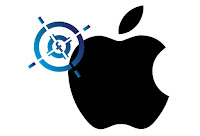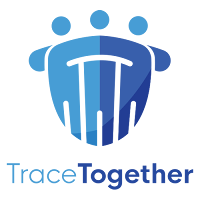Clubhouse is a Social Media audio app - basically the voice-based version of IRC. You create or join rooms full of other users, hearing their voices as they speak. How awesome is that?!
Clubhouse is available on both iOS and Android, and the features may vary on each platform. Today, I will only be covering the features on Android.
The Premise
In Clubhouse, users congregate in rooms - open, closed or Social. These could be standalone or under a club. There, they speak to each other, Follow accounts the same way one might in other Social Media like Instagram or Twitter, and generally communicate. The functions are simple.As a user, you can join and leave rooms, create them (in which case you become a Moderator of that room), and do the same for clubs. You can schedule rooms and add other users as co-hosts. Users can send text messages to other users, or groups of users.
As a Moderator, you can bring people on stage, send people off the stage or even out of the room, mute people on stage and end the current room.
The Aesthetics
Cream, white, green and a dash of orange. These are the basic colors used by Clubhouse's user interface. It's not pretty, but it is clean and that is arguably more important.The Experience
Audio Social Media as a whole, can be pretty addictive. The app? It'll last you a while, for sure.The Interface
The icons are generally intuitive and the screen elements such as buttons and selectors, don't require a great deal of cognitive load to identify and use. In other words, the interface is simple enough to navigate even if one adds on Moderator functions.What I liked
App logo. The phone app icon changes every now and then, incorporating the faces of some well-known personalities. I like it!The Backchannel feature is a very simple messaging component for you to send messages to other users. You can include links and emojis, but not pics or videos... so far. Good thing too, or it'd be dick pic city. Being able to archive threads is a nice touch as well.
Clubhouse relies a lot on standard emojis for illustration and this is probably deliberate - while not exactly sleek-looking, the familiarity users have with emojis will play into how easily they learn to use the app.
The creators of this app have kept the interface relatively simple, and that is invaluable. An app being easy to use is one of the contributing factors towards user retention.
Frequent updates. The creators of this app take feedback seriously and keep making improvements. By the time I release this blogpost, I wouldn't be surprised if some of the things I don't like about it (see below) have been addressed.
What I didn't
The Block feature is cumbersome and complicated, and quite frankly, open to abuse. Currently, if you are on Stage in any room, that room is invisible to those you have Blocked. And if the Blocked user is in a room, that room is hidden from you unless you scroll allll the way to the bottom of your Hallway and click on the Show Hidden Rooms button. This is clumsy AF.Adding clubs. The plus buttons to add clubs only appears at the end of the list of clubs you are a member of, in your profile. If you have membership in many clubs, that's a lot of scrolling to do. Besides, it would be nice to have all your clubs listed in a section without all that horizontal scrolling.
Button placement can be problematic in some places. For example, it's way too easy to accidentally open a Private room with other users even when your intention was to scroll through the list of current active users or reply to a message.
In addition, as a Moderator, it's easy to accidentally kick someone off-stage if you're trying to do something as innocuous as reading their profile. It's also easy to accidentally give Moderator status to a troublemaker on stage when you're trying to kick him or her off-stage. The former is a mere annoyance, but the latter is a disaster waiting to happen, and it's all due to the placement of the buttons, all right next to each other.
Co-hosting a room is another potential minefield. When scheduling a room, the user can add anyone as a co-host... without his or her explicit permission. The co-host may be offline and not even aware of it. Now, what if the title of the room was something contentious, like "Black Lives Don't Matter" or "Women belong in the kitchen"?
Speaking of scheduling rooms, it's all well and good when you only want to schedule a one-off room. But what if you want to schedule a daily or even weekly room? Going through the process every single time is a pain in the ass.
It would be nice if we could change the titles of the rooms we open, without having to shut down and restart the room. Sometimes, typos happen. Conversation topics change.
Notifications and pinging can be a pain in the ass, especially if you're the one getting the pings or the notifications.
Conclusion
There's a lot to like about Clubhouse. There's also quite a lot not to like about Clubhouse. Certainly plenty of room for improvement, but the good news is that most of it is fixable by designing the interface carefully.The idea behind Clubhouse is certainly innovative, but it's by no means the only one of its kind right now. Already, knockoffs of this app are saturating the market. Whether or not Clubhouse can stay afloat in a world full of copycats, remains to be seen.
My Rating
6.5 / 10Leaving quietly and landing my plane,
T___T
T___T









































